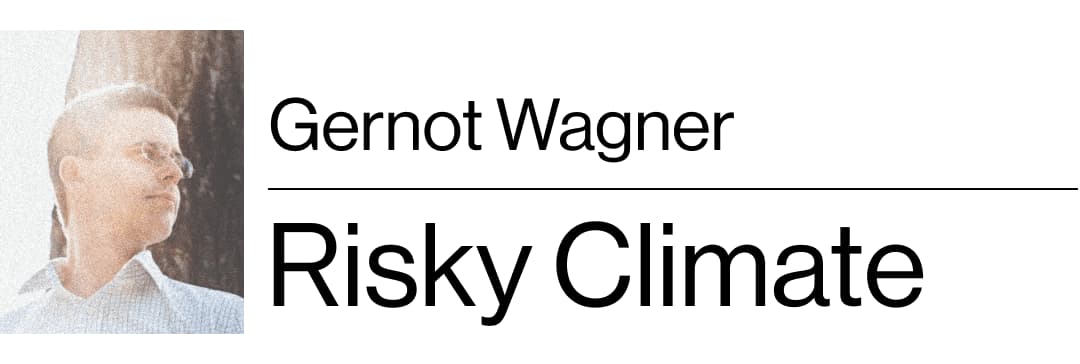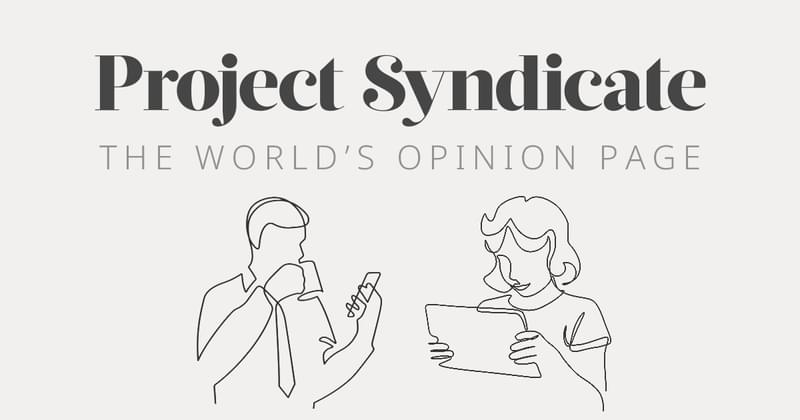The Virus Is Teaching Everyone What Runaway Growth Really Means
To make sense of the spread of Covid-19, economics—particularly black swan events and compound growth—can provide guidance.

Read the full Risky Climate column at Bloomberg Green.
Compound growth is relentless. Investors know that all too well: Start saving early, and even low annual growth rates will eventually yield big results.
Black swan events, too, are relentless. The existence of low-probability, high-impact events, in fact, is a powerful explanation for the long-standing “equity premium puzzle,” why equities on average return so much more than bonds and make compound growth all the more powerful.
Climate change is beset with both. I’ve spent a decade trying to explain that to anyone who’ll listen. It’s not levels; it’s growth rates. It’s not what we know— though that’s bad enough—it’s largely about the unknowns and perhaps unknowables.
Black swans need no explanation in the context of the coronavirus pandemic. Compound growth, alas, still does—or at least it did for much too long into the current crisis.
Witnessing the rapid changes in attitudes has been more than educational, to put it mildly. Watching the Trump administration—and, by extension, Fox News—turn 180 degrees almost overnight might be particularly jarring. But this time, even oft-rational leaders were caught off guard. French President Emmanuel Macron went to the theater on Friday, March 6, demonstrating normalcy. The following Tuesday, his culture minister tested positive for the virus. A week later, Macron ordered a complete shutdown of the country.
I tried to think through this process with students in my graduate Economic Policy Analysis class at New York University’s Wagner Graduate School of Public Service. Covid-19 forced their midterm exam to be take-home. And instead of climate change and other topics we’d discussed through most of the semester, it was solely focused on the virus.
The two topics: compound growth and a (simple) benefit-cost analysis of “shutting down” New York City the next morning. Given that it was take-home, I had students text me their initial gut reaction near the beginning of the exam and, at the end, their final decision. “Shut down New York City: Yes/No?”
Without fail, every student’s early text concluded “not yet.” Shutting down the City That Never Sleeps, after all, sounds rather crazy. Covid-19 cases might be multiplying rapidly, but the multiplicative effects of a shutdown would surely be greater still.
After going through the admittedly simple benefit-cost analysis (for example, we conflated New York City with Manhattan), every student recommended an immediate shutdown. Anyone who can, work from home. Those who can’t, stop work (and get compensated for doing so). Only essential employees should go to work—and if you have to ask whether your work is indeed essential, stay home.
There are good reasons to be skeptical of any such exercise. A simple benefit-cost analysis—the midterm exam called it “direct/narrow/naïve”—always misses lots of potentially important impacts.
One is mental health, another the all-important distributional consequences: As usual, it’s the poor and vulnerable who are most negatively affected. The rich adapt, the poor suffer. A benefit-cost analysis, meanwhile, discounts the poor even further. All that is, for example, what makes New York City’s decision to provide “grab-and-go” breakfasts and lunches at schools so important. (Assistance, of course, cannot—and does not—end there.)
The first question one must ask when looking at any benefit-cost analysis is where it might be so wrong as to overturn the original results. For climate, it’s clear that standard benefit-cost calculations lead to an underestimate of the true cost of each ton of carbon dioxide emitted. Benefits of mitigation are typically higher than calculated, while cost estimates often turn out to be lower than assumed.
For Covid-19, the uncertainties also seem to point in one and only one direction: toward shutting down sooner rather than later. Given that the benefits of shutting down today include avoiding a later shutdown, it’s hard to see how any of the many other uncertainties could dwarf the relentless compound growth of infections of roughly 33% per day.
Places that shut down sooner, primarily Hong Kong and Singapore but also South Korea, experienced enormous costs. What they avoided was even greater costs, to say nothing of the many more deaths.
It’s exactly this insight that reportedly convinced British Prime Minister Boris Johnson—belatedly—to pursue strong mitigation measures as well. The original U.K. strategy of “herd immunity,” after all, would have implied a significant culling of the herd.
All that points to another significant lesson that applies to the virus as much as to climate and to decision-making more broadly: Your actions inadvertently causing a death (an “error of commission”) might feel worse than the lack of one’s actions leading to that same death (an “error of omission”), but the end result is the same. Error is error, dead is dead.
With Covid-19, the bias goes toward leaders wanting to avoid doing too much at first, lest they are seen to be causing undue economic pain. Omitting early action, meanwhile, has already proved to cause even more pain later on.
Economist Milton Friedman famously argued how actions taken in a crisis “depend on the ideas that are lying around.” In this crisis, it behooves us not to ignore one of the most powerful of economic ideas: how compound growth, in the end, dwarfs all.
Gernot Wagner writes the Risky Climate column for Bloomberg Green. He teaches at New York University and is a co-author of Climate Shock. Follow him on Twitter: @GernotWagner. This column was first published by Bloomberg Green on March 20, 2020, and does not necessarily reflect the opinion of Bloomberg LP and its owners.


